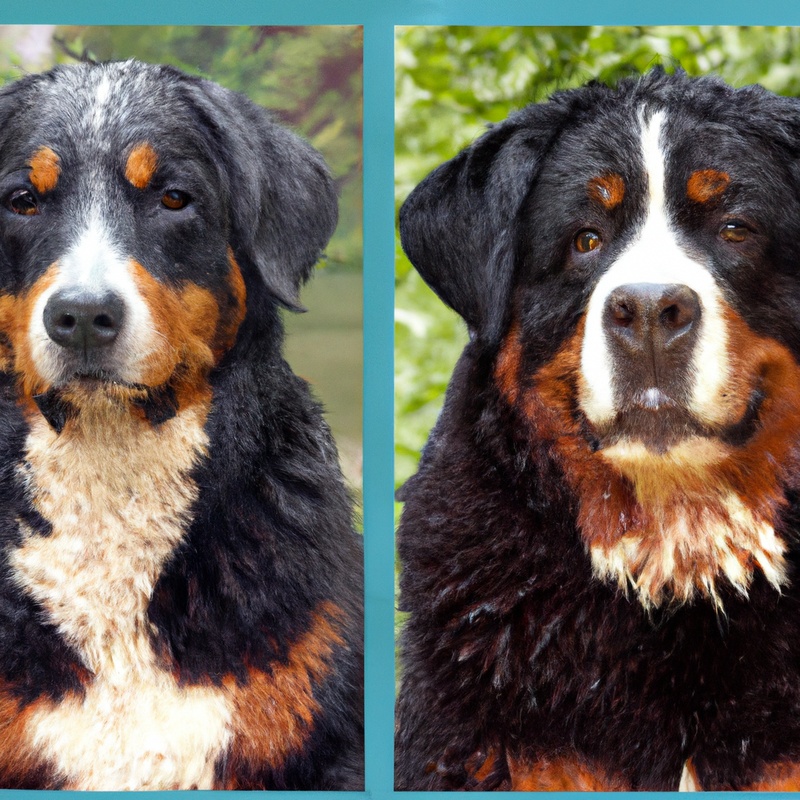Can Bernese Mountain Dogs Be Trained For Search And Rescue Missions?
Key Takeaways:
- Bernese Mountain Dogs can be trained for search and rescue missions.
- Their size and strength make them suitable for various tasks.
- Positive reinforcement methods are effective in training them.
- Consistent training and socialization are crucial for their success in search and rescue missions.
Are Bernese Mountain Dogs the heroes we’ve been waiting for in search and rescue missions? With their striking appearance and gentle temperament, it’s easy to overlook the remarkable abilities of this breed.
As a dog enthusiast and search and rescue expert, I have witnessed firsthand the intelligence and trainability these dogs possess.
But can they truly excel in this demanding field? In this article, we will explore the training abilities of Bernese Mountain Dogs, the specialized training required for search and rescue missions, and the challenges and considerations involved.
Prepare to be amazed by the potential of these incredible canines.
| Question | Answer |
|---|---|
| Can Bernese Mountain Dogs be trained for search and rescue missions? | Yes, Bernese Mountain Dogs can be trained for search and rescue missions. They are intelligent, strong, and have a natural instinct to help and protect. However, their suitability for this role may vary depending on individual temperament, training, and physical ability. |
Training Abilities of Bernese Mountain Dogs
Intelligent and Trainable Breed
Bernese Mountain Dogs are known to be an intelligent and trainable breed.
They have a natural willingness to please their owners, making them receptive to training.
With consistent and positive reinforcement methods, Bernese Mountain Dogs can quickly pick up commands and behaviors.
Their intelligence also makes them adaptable to various training tasks, such as obedience, agility, and even search and rescue missions.
However, every dog is unique, so it’s important to tailor training methods to suit their individual needs and personalities.
With patience and consistency, you can successfully train a Bernese Mountain Dog.

Natural Skills and Abilities
Bernese Mountain Dogs have natural skills and abilities that can make them well-suited for various tasks.
Their strong build and endurance enable them to pull heavy loads, like carts or sleds.
They have a keen sense of smell and can track scents, making them good at search and rescue missions.
Bernese Mountain Dogs are also known for their gentle temperament and friendly nature, which makes them great for therapy work.
With their intelligence and eagerness to please, these dogs can excel in obedience training and agility competitions.

Physical Requirements for Search and Rescue Dogs
Physical Requirements for Search and Rescue Dogs depend on the specific task at hand. They need to be in good health with strong endurance, agility, and stamina.
They should have excellent vision, hearing, and sense of smell.
Their size should be appropriate for the type of search and rescue work. They should have a fit body and strong muscles to navigate through rough terrains.
Mental stability and the ability to remain focused even in stressful situations are also crucial for search and rescue dogs.
Regular exercise, proper diet, and ongoing training are necessary to maintain their physical capabilities.

Basic Training for Search and Rescue Missions
Obedience Training
Obedience training is a key component in preparing a dog for search and rescue missions.
It helps establish control, focus, and communication between the handler and the dog.
During obedience training, dogs are taught commands such as sit, stay, heel, and come, which are essential for their safety and effectiveness in the field.
It also builds the dog’s confidence and reinforces their bond with the handler.
Consistency, positive reinforcement, and patience are important in obedience training.
Scent Training
Scent training is a key component of search and rescue missions.
It involves training dogs to use their sense of smell to locate missing individuals.
To start scent training, you’ll need a strong-smelling object, like a cloth with the person’s scent on it.
Present the scent to the dog and reward them for indicating interest or locating the source.
Gradually increase the difficulty by hiding the scent or introducing distractions.
Consistency and positive reinforcement are crucial in scent training.
Tracking and Trailing Training
Tracking and trailing training is essential for search and rescue missions.
It involves teaching dogs to follow scents and track missing individuals.
To train a dog for tracking and trailing, start with basic obedience training and gradually introduce scent discrimination exercises.
Use positive reinforcement techniques, such as treats and praise, to reward the dog for finding and following scent trails.
Gradually increase the difficulty of the trails to challenge the dog’s skills.
Consistency and repetition are key to success in tracking and trailing training.
Specialized Training for Search and Rescue Missions
Wilderness Navigation and Orientation
Wilderness navigation and orientation are essential skills for search and rescue missions.
Knowing how to navigate through unfamiliar terrain and maintain your bearings is crucial for successful operations.
Here are some key aspects to consider:
- Familiarize yourself with topographic maps and how to read them accurately. These maps provide valuable information about elevation, terrain features, and landmarks that can aid in navigation.
- Learn how to use a compass effectively. A compass helps you determine your direction and maintain a consistent heading, even in challenging environments. Practice using it in different scenarios to improve your skills.
- Understand the importance of natural landmarks and how to identify them. Taking note of distinctive features such as mountains, rivers, or rock formations can help you determine your location and navigate more effectively.
- Consider learning basic GPS navigation techniques. While traditional navigation methods are essential, GPS devices can provide valuable backup and precise coordinates in case of emergencies.
Remember, practice is key when it comes to wilderness navigation and orientation.
Regularly honing these skills will boost your confidence and increase your chances of a successful search and rescue mission.
Stay safe, and happy exploring!
Water Rescue Training
Water rescue training is essential for any search and rescue dog, including Bernese Mountain Dogs. These training sessions focus on developing their swimming and lifesaving skills, as well as their ability to work in various water-related emergencies.
During water rescue training, dogs learn how to locate and safely approach individuals in distress, how to tow them to safety, and how to bring them back to shore.
They also become proficient in using safety equipment such as life jackets or buoyancy aids. Additionally, training includes exposure to different water conditions and environments to prepare the dogs for real-life rescue situations.
Disaster Relief Training
Disaster relief training is vital for dogs involved in search and rescue missions.
It prepares them to navigate hazardous environments and locate survivors.
This training typically includes obedience, agility, and scent detection exercises.
Dogs learn to work with handlers, follow commands, and remain focused on the task at hand.
They are trained to search for people both on land and in water, making them valuable assets during natural disasters or other emergencies.
Regular training and realistic simulations help keep dogs prepared and ready for any situation.
Challenges and Considerations
Health and Physical Limitations
Health and physical limitations can pose challenges for Bernese Mountain Dogs in search and rescue missions.
Due to their large size and heavy build, these dogs may struggle with agility and endurance, especially in difficult terrain or extreme weather conditions.
Additionally, they are prone to certain health issues such as hip dysplasia and respiratory problems.
Regular exercise, proper nutrition, and regular vet check-ups are essential to ensure the well-being and readiness of these dogs for search and rescue work.
Specific Temperament Traits
Specific Temperament Traits of Bernese Mountain Dogs make them well-suited for search and rescue missions. These dogs are known for their loyalty, intelligence, and calm demeanor, which are essential qualities for this demanding task.
Bernese Mountain Dogs are also very adaptable and can work effectively in various environments and weather conditions.
Additionally, their strong sense of smell and tracking abilities make them excellent at locating and rescuing missing persons. With proper training and socialization, Bernese Mountain Dogs can excel in search and rescue operations.
Time and Commitment Required
Training a Bernese Mountain Dog for search and rescue missions requires a significant amount of time and commitment.
These dogs are intelligent but can be stubborn, so consistent training sessions and daily practice are vital.
You need to devote time to socialize them with different environments, people, and animals.
Additionally, you should be prepared for ongoing training and reinforcement to maintain their skills.
This includes regular exercise, mental stimulation, and opportunities to practice search and rescue techniques.
Overall, be ready to invest the time and effort needed for this challenging but rewarding endeavor.
Final Verdict
Bernese Mountain Dogs possess the intelligence, natural skills, and physical requirements necessary for successful search and rescue missions. With basic training in obedience, scenting, and tracking, they can develop into highly reliable search and rescue dogs.
Specialized training in wilderness navigation, water rescue, and disaster relief further enhances their capabilities.
However, it’s important to consider their health and physical limitations, specific temperament traits, and the time and commitment required for training. Overall, Bernese Mountain Dogs can be trained for search and rescue missions, but it requires dedication and understanding of their unique needs.








